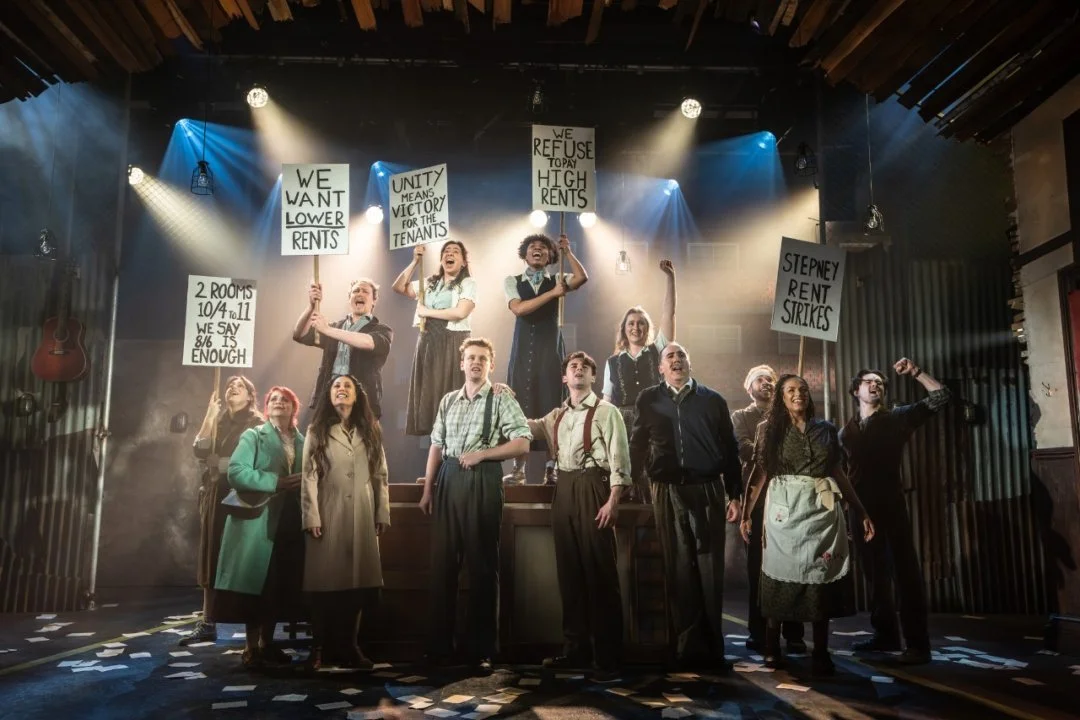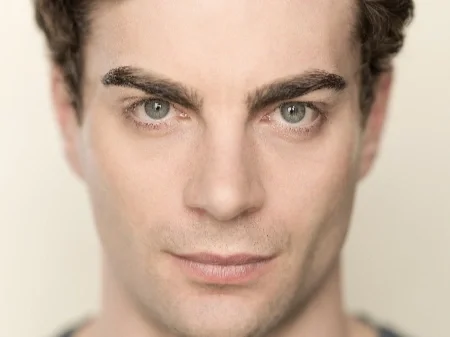Interview with Milly Sweeney, Water Colour
Conducted by Emmie for Theatre & Tonic
Glasgow-based playwright Milly Sweeney will make her professional debut with Water Colour, a new play which tells a story of connection, mental illness, and opening yourself up to the world. The play won the St Andrews Playwriting Award last year, which is a fantastic programme that encourages and supports the next generations of playwrights living in Scotland. We chat to Milly to find out more about this work and her career in particular as she takes the next steps professionally.
Water Colour is your professional writing debut. Can you tell us about the inspiration behind the story?
“Water Colour” was inspired in part by my own struggles with my mental health, and my experiences seeking help both through the NHS and privately. I knew this was something I’d always end up writing about one day, but didn’t quite know what shape the story would take. Then someone I know had an experience where they had to talk a suicidal woman down from one of the bridges that crosses the Clyde. I thought (with their permission, of course) that this could be an interesting and important catalyst for a story. I’ve always been fascinated by the idea of strangers - the potential in someone you don’t quite know yet. And I was also inspired by Glasgow, having lived there my whole life, and grown to know the city intimately.
What themes or ideas did you know you wanted to explore in the play from the first day you began developing it, and why were they important to you?
When developing “Water Colour,” the themes of mental health, connection, and art were at the forefront of my mind. I once had a therapist say to me that the opposite of depression is connection, and that’s always stuck with me. Post-COVID, we’re living in an incredibly disconnected reality, so it’s no wonder we’re in a mental health crisis. Esme and Harris are both very lonely, and that contributes greatly to their struggles. I was also eager to explore the link between the identity of the “artist” and mental illness through Esme. Art is her coping mechanism and a source of joy, but it also means she places a lot of pressure on herself. This is something I find quite relatable pertaining to my acting and writing. I sometimes feel as though I’m in a love/hate relationship with it.
As for Harris, I knew I wanted to explore mental health in men, and how patriarchal standards make it difficult for men to reach out and get the support they need.
How does the title Water Colour reflect the play’s themes or characters?
Even in the murkiest waters, there is colour to be found. The idea behind the title “Water Colour” is that, in looking at a hopeless situation, there is always some positivity you can extract if you sit with it long enough. That optimistic outlook is quite relevant to the overall moral of the play.
Have the actors you have involved in this production been an important element of how it’s grown over time?
The actors have definitely shaped how the play has turned out. They embody the characters so well, and have grown to know them intimately, making them their own. Therefore, if they have any suggestions about how to alter a line or moment in the script, I am more than happy to take them on! I think the actor’s voice is so valuable in the rehearsal room - they’re the ones performing the show at the end of the day, so if it doesn't feel right to them, it's probably not right.
As this is your professional debut, what has been fundamental to you during your journey and where did you gain the most support?
I’m such a firm believer in “third spaces.” I find it really hard to write at home, and pretty much all of “Water Colour” was written in cafes and libraries. It's important that these spaces stay open because they foster community and creativity! Having Frances Poet as a dramaturg has been integral to the process as well. I’d never worked with a professional dramaturg before, and it can be a really vulnerable thing to open up your work for criticism. Frances was so encouraging and uplifting, helping point my play in the right direction. I learned so much from her that I can implement into my writing and approach to theatre going forward. However, the play would certainly not exist if it weren’t for my wonderfully supportive friends and family. I count myself really privileged to be surrounded by people who uplift me and my ambitions. My mum and dad in particular, have been my biggest cheerleaders from day 1, so shout-out to them!
What are the challenges of gaining a platform for new writing, especially in Scotland, which has a different theatre scene to the rest of the UK?
The Scottish Theatre scene is quite small and intimate. It’s a case of “everyone knows everyone.” I think this is a really beautiful thing, but it means emerging artists can get shut out fairly easily. We need to take a chance on artists we don’t quite know yet, and allow them to surprise us. Particularly artists from marginalised backgrounds. In terms of platforming new writing, there’s a lack of opportunity, which is a direct result of lack of funding in the theatre industry as a whole. I’m twenty-one, so granted I haven’t been in the industry that long, but I’ve already noticed a decline in opportunities.
Has there been anything which has surprised you about the process?
Probably just the sheer number of people it takes to create a production like this. From the production team, to the marketing team, to the press team - so many individuals working hard to make “Water Colour” happen. It's incredible.
What do you hope audiences take away from Water Colour?
I want “Water Colour” to instil hope in audiences. I want them to leave the theatre with a greater understanding of mental illness and those struggling with it. But I also hope it inspires people to be kinder to one another, because you never quite know the impact you could have on another individual.
Why is it important that work surrounding mental health has a platform?
It is only by representing mental illness in media - whether that be theatre, TV, books or films - that we can work on truly destigmatising it. There is still a lot of shame surrounding a mental health diagnosis, taking medication, or needing extra support. Particularly in men. The more recognition this cause gets, the more likely it is to receive attention and funding. The latter is crucial as the mental health sector is still (as far as I am aware) very underfunded.
Finally, describe Water Colour in three words..
People Make Glasgow. Is that too cheesy? I’ll go for heartfelt, visual, and honest.
Water Colour premieres at Pitlochry Festival Theatre from 9-17 May and the heads to the Byre Theatre on 28 & 29 May

















